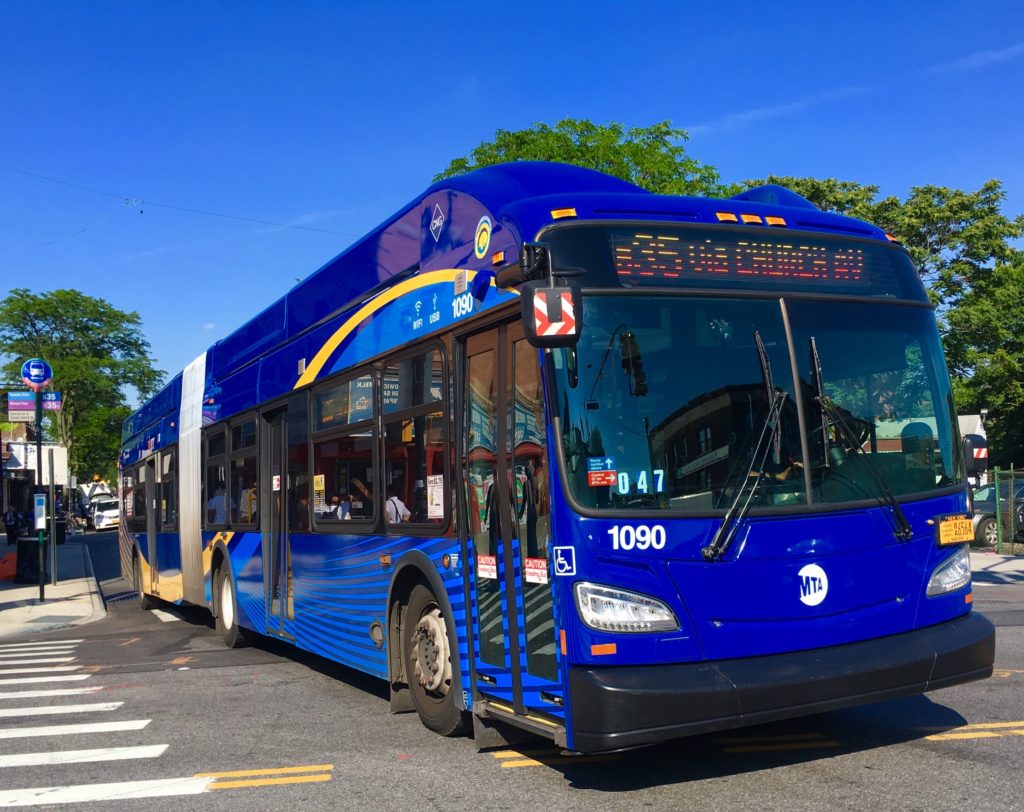Riders Alliance Urges NYS to Invest in Transit, Stop Fare Hikes, Run Buses, Trains Frequently

The Riders Alliance, New York’s grassroots organization of subway and bus riders, joined by members and allies including NYC Comptroller Brad Lander and other elected officials, rolled out its 2022 state budget agenda for renewed investment in the city’s public transit system. Bus and subway riders urged the governor and legislature to fund an agenda focusing on riders’ needs for affordable and frequent service and the potential of public transit investments to advance equity and fight climate change.
“Riders need Governor Hochul and the legislature to protect us from fare hikes and to run more buses and trains,” said Riders Alliance Lead Organizer Mayra Aldás-Deckert. “Stopping the fare hike for at least five years and delivering service every six minutes will make the city more equitable, fight climate change, and bring back riders to transit. Not only can New York afford to do this, we can’t afford not to make this investment in our future.”
The Riders Alliance, whose members have fought over the past decade to win major advances like Fair Fares, congestion pricing, and busways across the city, demanded Thursday that transit fares be frozen for at least five years and service run every six minutes on most subway and bus lines. Speaker urged the governor and legislature to fund these measures with roughly $500 million in new spending to improve access to jobs, education, and healthcare, combat climate change, and rebuild ridership lost to COVID-era lockdowns and workforce changes.

Brooklyn Boro
View MoreNew York City’s most populous borough, Brooklyn, is home to nearly 2.6 million residents. If Brooklyn were an independent city it would be the fourth largest city in the United States. While Brooklyn has become the epitome of ‘cool and hip’ in recent years, for those that were born here, raised families here and improved communities over the years, Brooklyn has never been ‘uncool’.